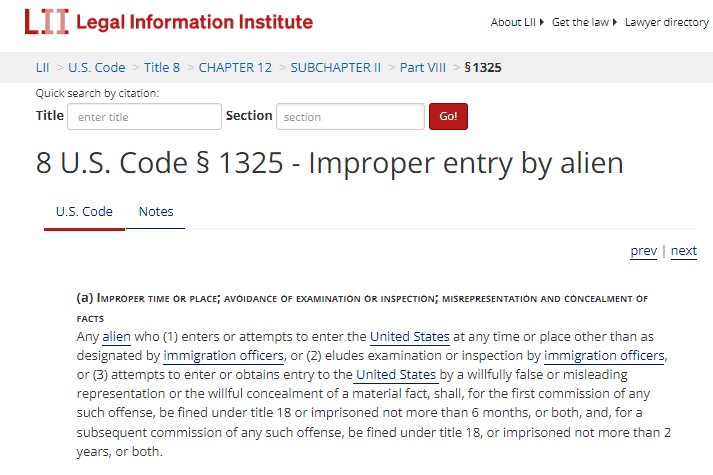
Section 1325 Improper entry by alien
For the first time in US history, this act made crossing the southern border from Mexico into the country a crime.
Despite substantial nativist support, Mexico and other countries in Central and South America were not made a part of the quota system established by the National Origins Act. Agriculture and mining interests in the Southwest had opposed their inclusion because of their need for Mexican laborers. In 1929, Senator Coleman Livingston Blease (D-SC), an avowed White supremacist, proposed Section 1325 as a compromise. Rather than place a cap on the number of Mexicans who could enter the country, the new law required that all immigrants from Mexico enter through one of several official checkpoints, pay a very high entrance fee, and in some cases submit to literacy tests and health-related procedures such as kerosene baths. Anyone trying to enter elsewhere along the border would be breaking the law.
Given the length of the US-Mexico border and the few established checkpoints, many Mexican laborers continued to follow the routes into the country that they had followed for years. In the first decade after its passage, the law was used to prosecute close to 44,000 people who had attempted such illegal crossings.

